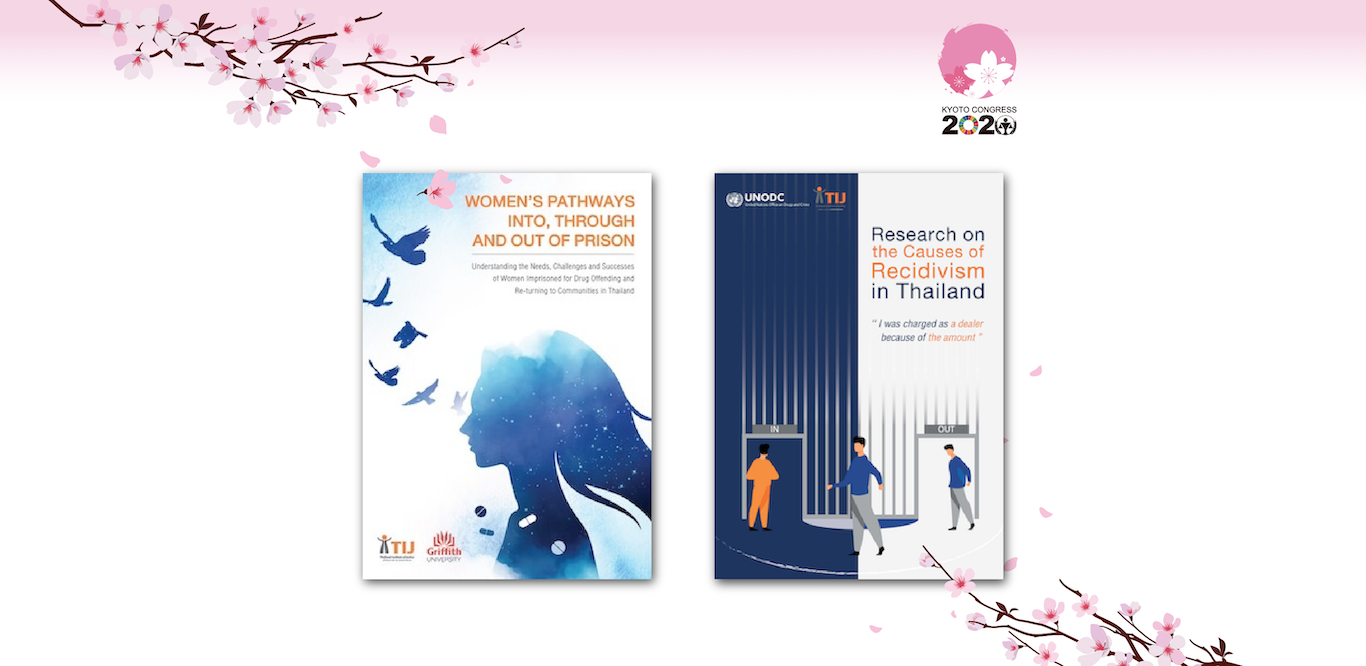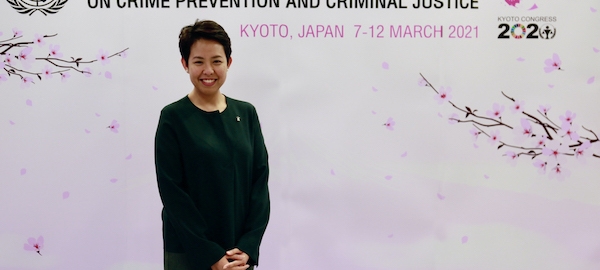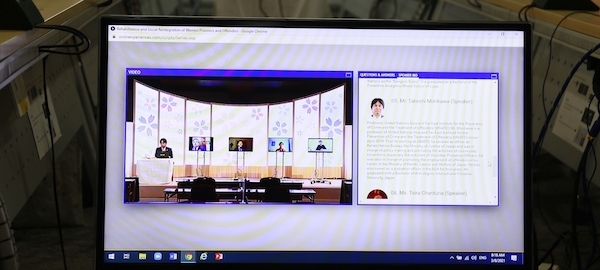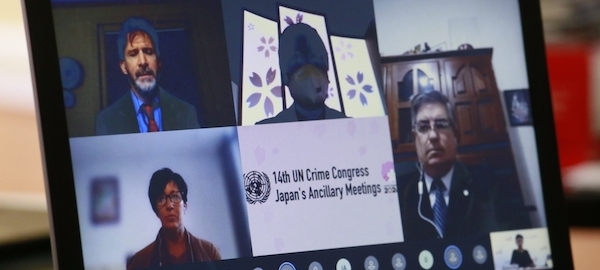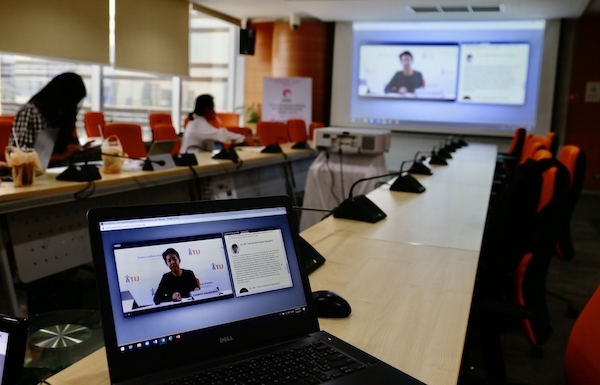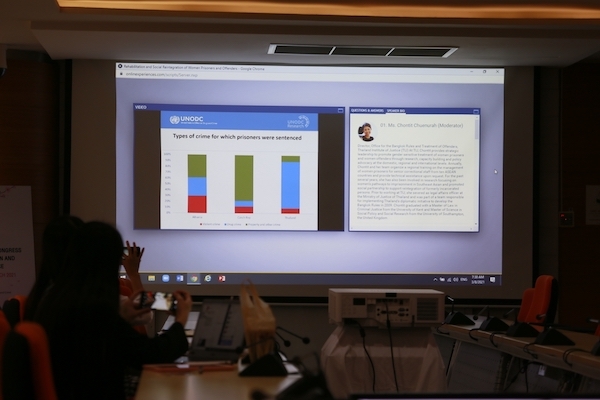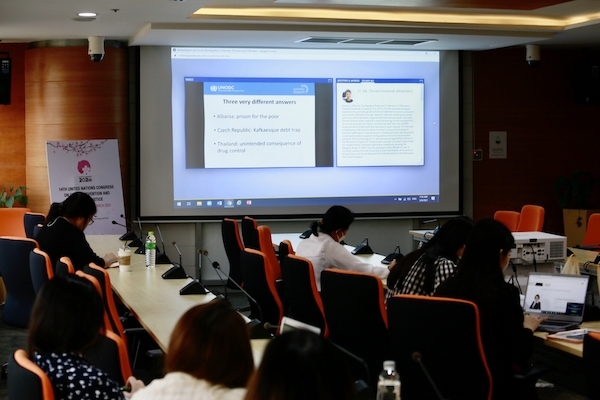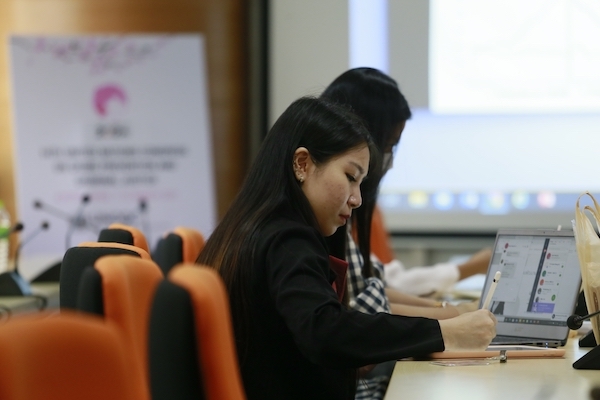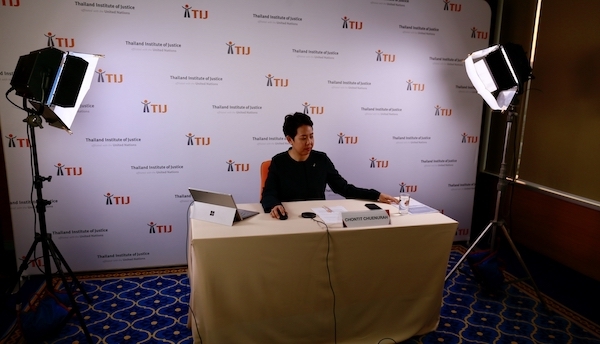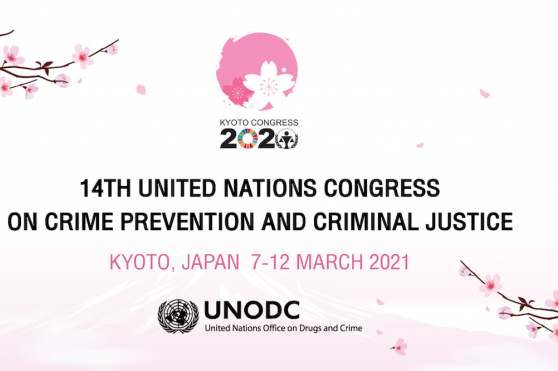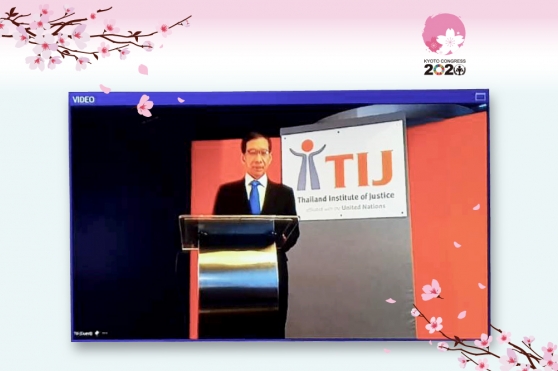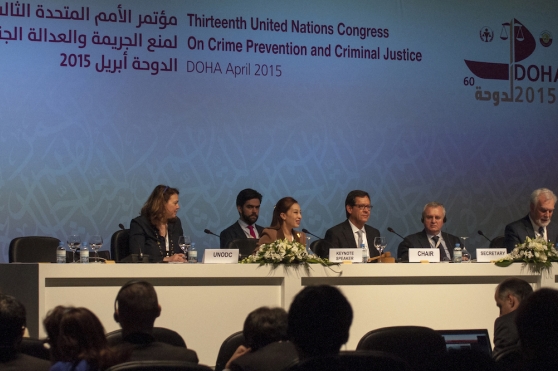Rehabilitation and Social Reintegration of Women Prisoners and Offenders
Report prepared by Tom Schmid, UNAFEI
Ms. Chontit Chuenurah of the Thailand Institute of Justice moderated the ancillary meeting, noting that 8 March is International Women’s Day and recalling that December 2020 marked the 10th anniversary of the adoption of the Bangkok Rules.
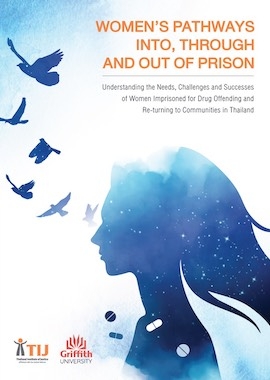 Dr. Samantha Jeffries presented an overview of the rehabilitation and social reintegration needs of women prisoners. While men and women have overlapping treatment needs, they also have very unique pathways to prison and subsequent treatment needs. For women, these pathways include victimization and trauma, disordered family lives, mental ill health and substance abuse, male influence and control, low levels of education, economic marginalization and family caretaking responsibilities. To respond to these needs, treatment programmes must be gender responsive and trauma informed. While in prison, women prisoners require healthy, rather than harming, prison environments, and require a treatment approach that emphasizes throughcare, or re-entry planning that begins at the time of incarceration. To the extent they exist, re-entry programmes are often gendered. For example, when women offenders are released from prison, obtaining accommodation is often challenging due to the economic marginalization that brought them to prison in the first place. Family, friends and intimate partners can facilitate or hinder successful women’s re-entry, and interactions with children are particularly important. Financial security is crucial to women’s successful reintegration, as the inability to obtain steady employment can lead to reoffending. Community acceptance is important to avoid stigmatization, as is post-release support and throughcare. While recidivism is generally viewed as the measure of success, women report that achieving safety, security and strong interpersonal relationships are the most important factors for them.
Dr. Samantha Jeffries presented an overview of the rehabilitation and social reintegration needs of women prisoners. While men and women have overlapping treatment needs, they also have very unique pathways to prison and subsequent treatment needs. For women, these pathways include victimization and trauma, disordered family lives, mental ill health and substance abuse, male influence and control, low levels of education, economic marginalization and family caretaking responsibilities. To respond to these needs, treatment programmes must be gender responsive and trauma informed. While in prison, women prisoners require healthy, rather than harming, prison environments, and require a treatment approach that emphasizes throughcare, or re-entry planning that begins at the time of incarceration. To the extent they exist, re-entry programmes are often gendered. For example, when women offenders are released from prison, obtaining accommodation is often challenging due to the economic marginalization that brought them to prison in the first place. Family, friends and intimate partners can facilitate or hinder successful women’s re-entry, and interactions with children are particularly important. Financial security is crucial to women’s successful reintegration, as the inability to obtain steady employment can lead to reoffending. Community acceptance is important to avoid stigmatization, as is post-release support and throughcare. While recidivism is generally viewed as the measure of success, women report that achieving safety, security and strong interpersonal relationships are the most important factors for them.
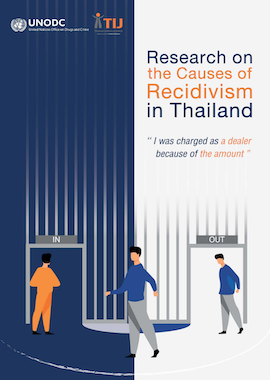 Ted Leggett of the UNODC presented on the factors contributing to recidivism in Albania, the Czech Republic and Thailand based on UNODC studies. The UNODC has conducted studies on recidivism in Thailand, Albania and Czech Republic, with studies planned in more countries. These studies demonstrated that, despite declines in violent crime, prison population are growing in all of the countries studied. While the crimes committed, sentences and so on varied by country, the focus groups in each country reported similar reasons for return to prison. However, unemployment and social environments were significant reasons for reoffending in all countries. The study established that prisoners’ views of the reason for their incarceration differed greatly by country. In Albania, prison is for the poor, as prisoners reported that they cannot afford to pay bribes to obtain release. In the Czech Republic, there are high levels of consumer debt that result in imprisonment. In Thailand, many prisoners reported that their incarceration was due to the unintended consequences of strict drug control laws, as 80% of prisoners are incarcerated for drug offences (and 14% of prisoners are female). In this regard, Mr. Leggett recommended that Thailand should re-evaluate its statutory threshold for aggravated drug sentencing.
Ted Leggett of the UNODC presented on the factors contributing to recidivism in Albania, the Czech Republic and Thailand based on UNODC studies. The UNODC has conducted studies on recidivism in Thailand, Albania and Czech Republic, with studies planned in more countries. These studies demonstrated that, despite declines in violent crime, prison population are growing in all of the countries studied. While the crimes committed, sentences and so on varied by country, the focus groups in each country reported similar reasons for return to prison. However, unemployment and social environments were significant reasons for reoffending in all countries. The study established that prisoners’ views of the reason for their incarceration differed greatly by country. In Albania, prison is for the poor, as prisoners reported that they cannot afford to pay bribes to obtain release. In the Czech Republic, there are high levels of consumer debt that result in imprisonment. In Thailand, many prisoners reported that their incarceration was due to the unintended consequences of strict drug control laws, as 80% of prisoners are incarcerated for drug offences (and 14% of prisoners are female). In this regard, Mr. Leggett recommended that Thailand should re-evaluate its statutory threshold for aggravated drug sentencing.
Julio Cesar Cepeda of the Argentine Federal Penitentiary Service presented on Argentina’s efforts to implement the Bangkok Rules. Argentina’s Federal Gendered Prison Programme promotes social reintegration, generates actions and opportunities to achieve successful reintegration and addresses the issue of gender differences. The programme has 10 key elements, which include reducing overcrowding, ensuring contact with family, providing health care, education and work, overcoming conflict, and human rights training. To facilitate women’s transition into prison and adjust to procedures in prison, a manual was created and translated into English. To minimize prison violence and conflict, the prison established a Coexistence Committee to address and overcome issues, and staff were trained in conflict resolution. A dog training programme was introduced to provide dogs to people with disabilities, and the programme included foreign national prisoners.
Professor Takeshi Morikawa of UNAFEI presented on the “Rehabilitation and Social Reintegration of Women Prisoners: Japanese Experience in the Area of Community Corrections”. In Japan, the number of women in prison is increasing, and the rates of theft and drug crimes among women are higher than those for men. Japan is also experiencing an increase in the rate of offending among elderly women, primarily theft and shoplifting. Community based treatment for women is provided primarily by Japan’s corps of 46,000 volunteer probation officers, who connect offenders with local services and provide guidance to develop self esteem and reduce anxiety. Some women also receive treatment and reintegration support from halfway houses. The Rose Café Project is a CBT-based drug dependence programme that is conducted through group work sessions. One of the unique characteristics is that offenders can participate in the programme for up to three years after leaving the halfway house. The Re-connect Project provides mental-care-based treatment by helping offenders learn to overcome difficulties in everyday life.
Ms. Tsira Chanturia of Penal Reform International spoke on the practices and challenges of rehabilitating and reintegrating women in Georgia. PRI has been active in the region by developing prison-based and re-entry programmes and by promoting the Bangkok Rules. COVID-19 has negatively affected the ability to provide reintegration programmes, such as restrictions on family visits and limited access to prisons by social workers, gender-specific health care, etc. PRI’s many diverse programmes have provided vocational skills, psychological counselling, legal aid (including assistance with issues such as divorce, child custody, property rights), restoring family ties, etc. The programmes have been well received by women and have been particularly helpful in developing their self-esteem. The presentation demonstrated the importance of multi-stakeholder support, involving government and civil society, to collaborate with prison authorities in enhancing gender-sensitive rehabilitation and reintegration programmes for women.
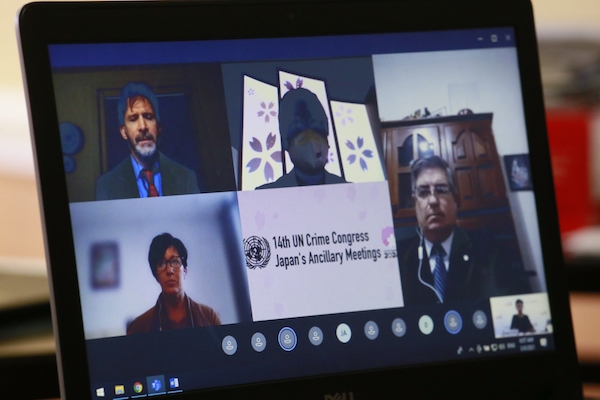
The issues of statistics, peer groups, halfway houses, and vocational training were addressed during the discussion session. Mr. Leggett described how recidivism rates are calculated in Thailand, noting that “reincarceration” rates are the norm for cross country comparisons rather than true rates of reoffending. Regarding the role of “peer groups” in treating women, Ms. Jeffries stated that prioritizing the restoration of family connections to replace contacts within deviant peer groups is particularly important. Mr. Leggett pointed out that reintegration programmes within the first few months of support are critical, and he found the concept of teaching personal finance skills (such as saving money) at halfway houses in Japan to be particularly interesting. Professor Morikawa mentioned that halfway houses in Japan help build self-efficacy and the ability to live independently. Ms. Jeffries shared the view that halfway houses play a fundamental role in preventing reoffending and the successful reintegration of women, as many of them attempt to avoid “red zones” in the community that increase the likelihood of reoffending. On the issue of vocational training, Mr. Leggett pointed out the importance of breaking through gender stereotypes by focusing on training for high-paying jobs and in-demand skills, such as in the construction industry.
The moderator wrapped up the discussion by highlighting the importance of recognizing and responding to the gender-specific needs of women throughout their time in prison and during their return to the community, as well as the importance of collaboration between prisons and civil society in creating reintegration programmes.
A full research report is available at:
Women's Pathways Into, Through and Out of Prison
Research on the Causes of Recidivism in Thailand



